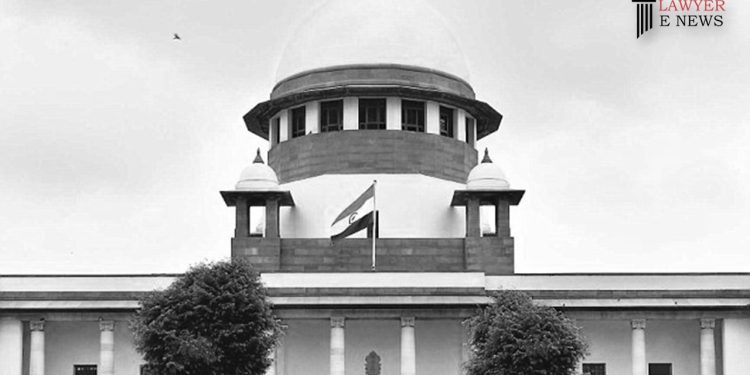FIR Registration Mandatory for Cognizable Offences – preliminary inquiry not permissible: Supreme Court

In a significant ruling today, the Supreme Court of India reiterated the mandatory nature of First Information Report (FIR) registration under Section 154 of the Criminal Procedure Code (CrPC) for cognizable offences. The bench, comprising Hon’ble Ms. Justice Bela M. Trivedi and Hon’ble Mr. Justice Dipankar Datta, set aside a previous High Court order dismissing a writ petition seeking the registration of an offence.
The case involved the appellant, Sindhu Janak Nagargoje, who had filed a writ petition in the High Court seeking directions to register an offence related to the severe assault and subsequent death of her brother. The appellant’s plea was dismissed by the High Court. However, the Supreme Court, citing the landmark case of “Lalita Kumari vs. State of Uttar Pradesh & Ors.” (2014) 2 SCC 1, emphasized the importance of registering FIRs for cognizable offences without any preliminary inquiry.
The bench held that, “The registration of FIR is mandatory under Section 154 of the Code, if the information discloses commission of a cognizable offence and no preliminary inquiry is permissible in such a situation.” The court further highlighted that the scope of preliminary inquiry is to ascertain whether the information reveals a cognizable offence or not and not to verify its veracity.
The judgment underlines the need for time-bound preliminary inquiries, not exceeding 7 days, and emphasizes that all information related to cognizable offences must be meticulously reflected in the police station’s records. The court also directed that erring officers failing to register FIRs for cognizable offences should face appropriate action.
This ruling reaffirms the significance of safeguarding personal liberty through prompt FIR registration for cognizable offences. The Supreme Court, allowing the appeal, directed that the concerned authorities proceed with the complaints filed by the appellant in accordance with the law.
Legal experts have hailed this decision as a milestone in ensuring swift action and accountability in cases involving cognizable offences. The judgment reinforces the principle that the registration of FIRs must be carried out promptly, based on the nature of the offence, without unnecessary delays or preliminary inquiries.
The Supreme Court’s ruling sets a precedent in upholding the rights of victims and complainants and ensuring a just and efficient legal process in cases of cognizable offences.
Date of Decision: AUGUST 08, 2023
SINDHU JANAK NAGARGOJE vs THE STATE OF MAHARASHTRA & ORS.





